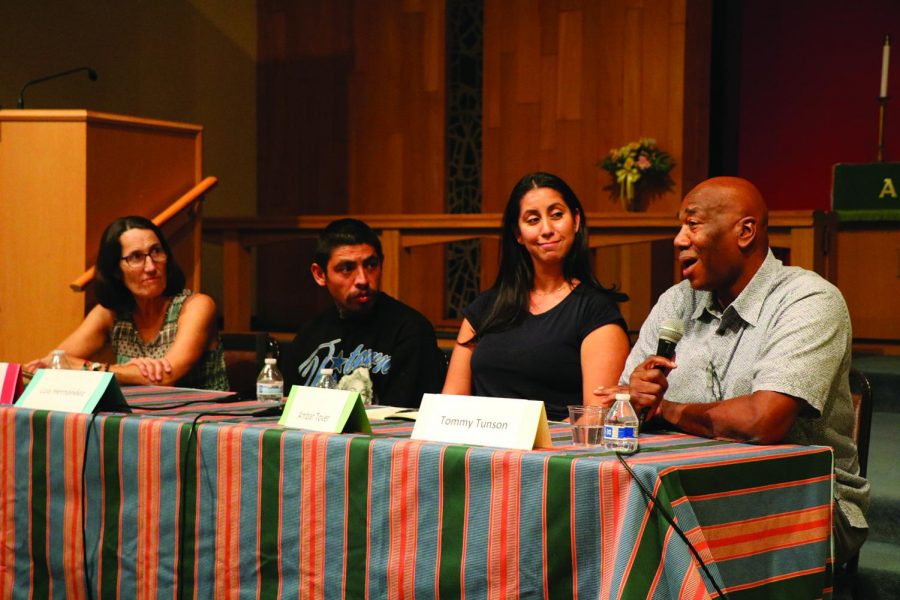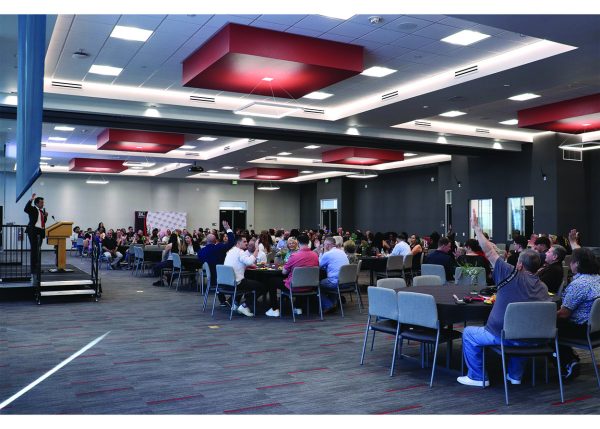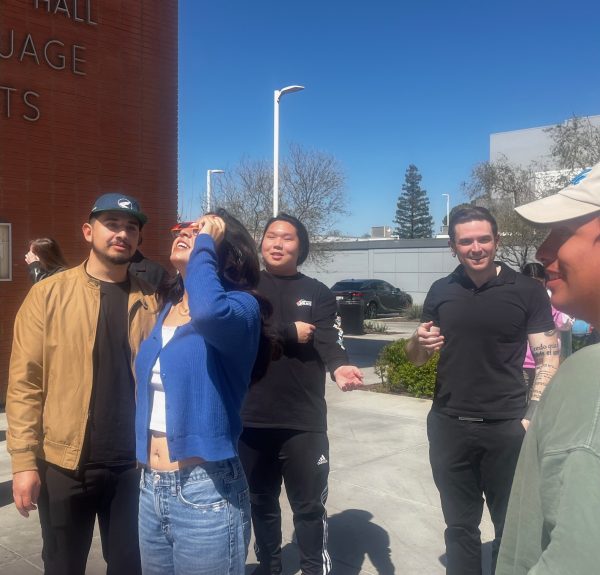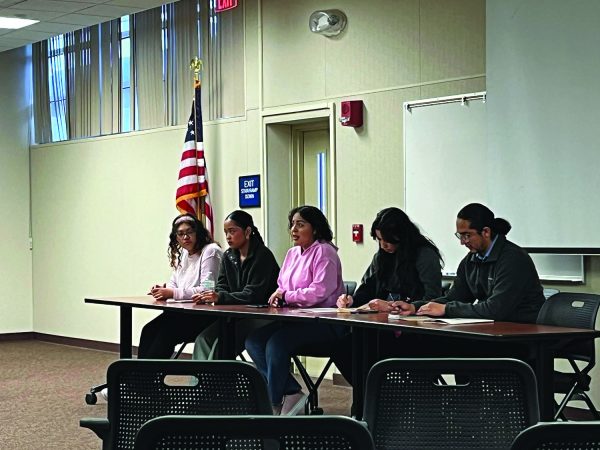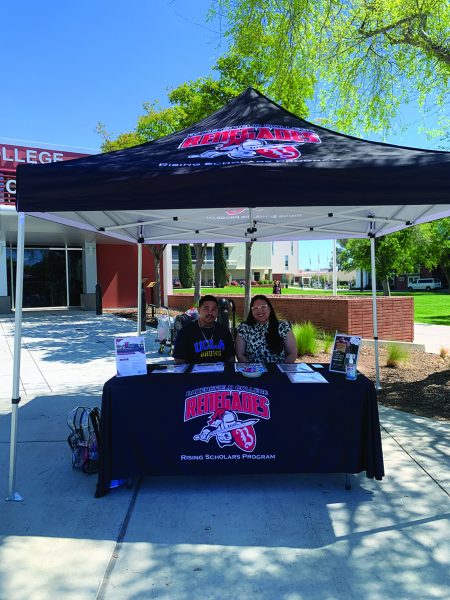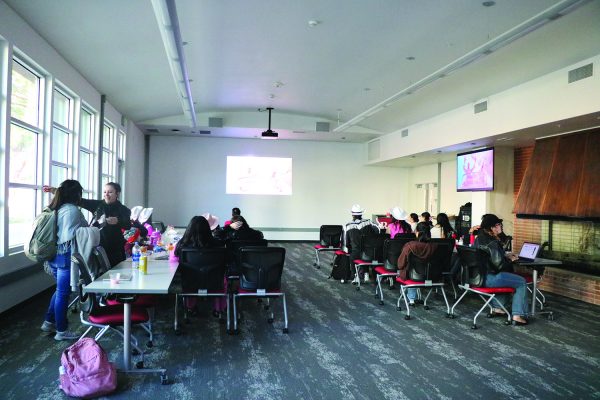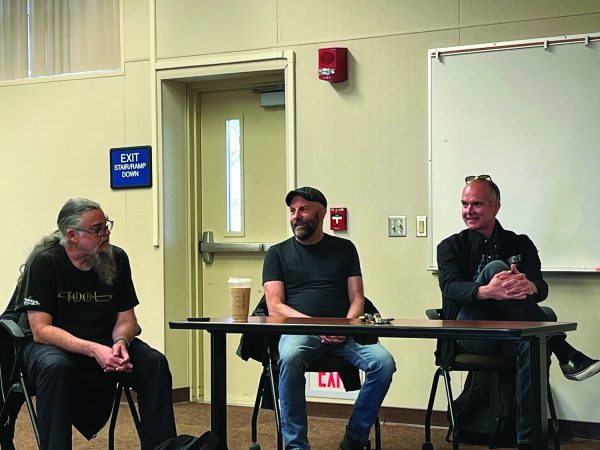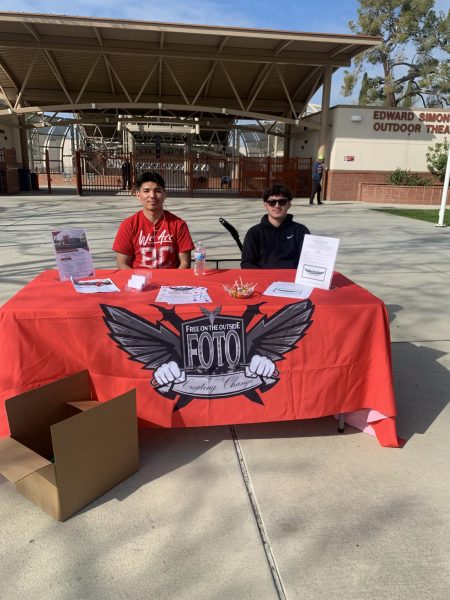Emmanuel Lutheran Church holds forum about immigration in Kern County
From the left of photo is Jeannie Parent, Luis Rodriguez, and Ambar Tovar listening to Bakersfield College criminology professor Tommy Tunson speak at the Mesa Verde forum.
October 11, 2018
As part of the Kern County’s One Book Project’s topic about incarceration, a forum about the Mesa Verde immigration detention center took place at Emmanuel Lutheran Church on Sept. 27.
Discussed at the forum were the immigration laws in the United States and the treatment of undocumented immigrants in detention facilities in America.
A panel, moderated by pastor Dawn Wilder, consisted of four people of various backgrounds and professions. Jeannie Parent, Luis Rodriguez, Ambar Tovar, and Tommy Tunson provided anecdotes, advice, and insight on about that night’s topic.
Jeannie Parent is the coordinator for the Kern Welcoming and Extending Solidarity to Immigrants (KWESI) group and an EMLS professor at Bakersfield College. She spoke about KWESI’s involvement with Mesa Verde’s detainees. Those a part of KWESI visit immigrants in the detention center and provide emotional support and advocate on their behalf.
Former detainee Luis Rodriguez spoke briefly about the four years he spent in the detention center. He was in Sacramento before being transferred to Mesa Verde; he was not familiar with the areas and had no family where he spent his time.
He talked about how the detainees were treated as if they were prisoners although some have not committed a crime. Rodriguez noted how he missed the birth of his son because he was detained.
He spoke about how he thought it was unfair to treat people differently because of documentation status.
Ambar Tovar is an immigration lawyer and director of Removal Defense for the United Farm Worker’s Foundation. She provided insight on what rights immigrants do not have in the United States.
“[Constitutional and due process rights] does not apply to immigration law,” Tovar said.
Then added that immigration laws are not like criminal laws where attorneys are appointed to those who cannot afford them.
“[In] immigration court you are not appointed an immigration attorney. You have to find one yourself,” she said.
Bakersfield College criminology professor and former police officer Tommy Tunson provided extensive information about the criminal justice system and immigration laws that tied into what Tovar spoke about during the forum. He also shared his thoughts on the treatment of undocumented immigrants and asylum seekers.
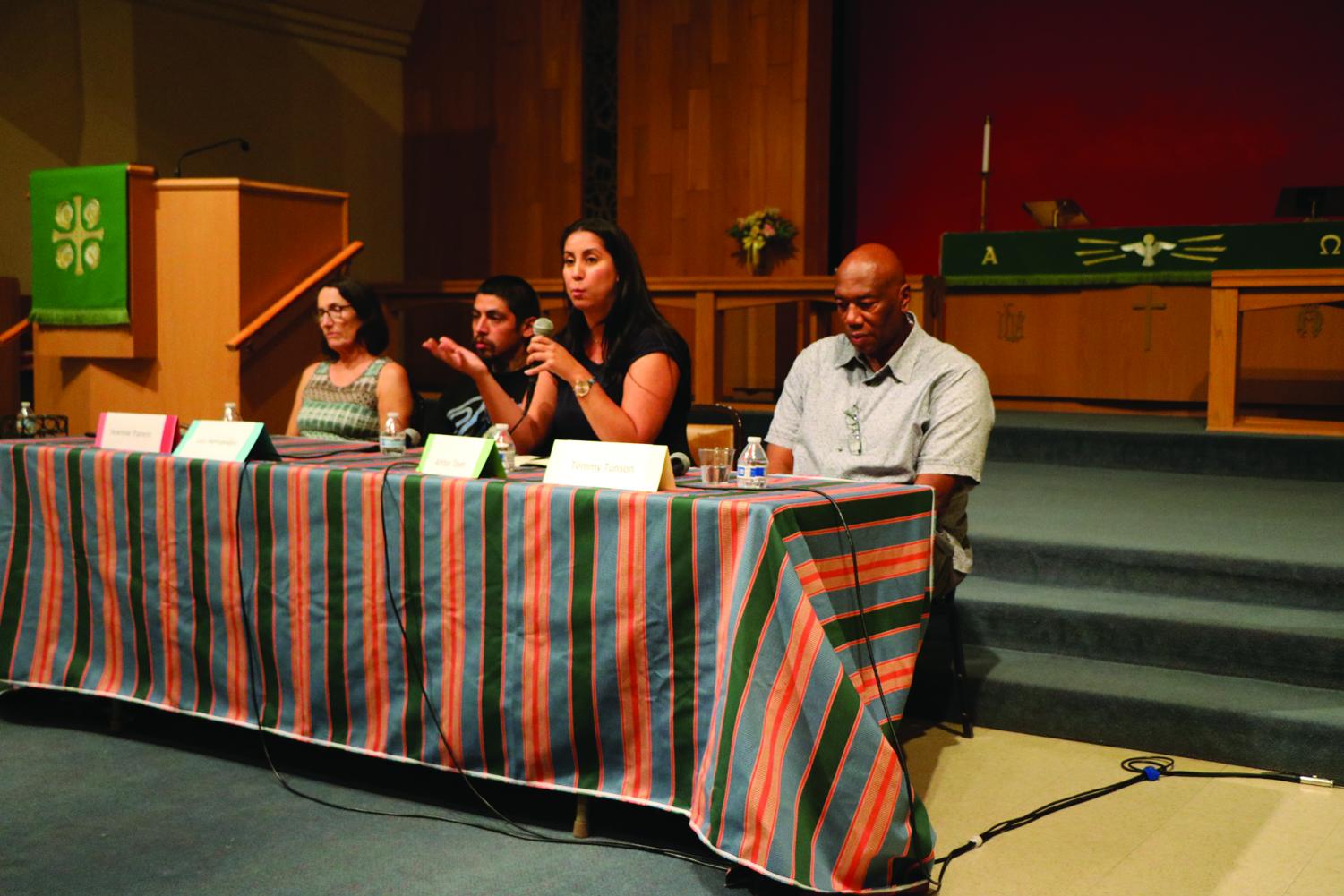
Ambar Tovar speaking at the Mesa Verde forum.
“I’m appalled at what I see our country doing to [immigrant] people,” he said, having seen first-hand the violence people are fleeing from other countries.
Tunson relates the detention of asylum seekers and children to the internment of Japanese-Americans in the 1940s.
To show how passionate he is on this issue, he told the audience about what he told his police officers in three cities where he was their chief. He told his officers that they are not going to arrest someone solely on the reason that they’re undocumented; they are not federal agents.
Near the end of the forum, there was a Q & A between the audience and the panelists. Questions ranging from why are there solitary confinement in immigration detention centers to how people can change how they can talk about immigration reform, and the differences between private institutions and state and federal institutions.
Tunson explained that the reason that the government made more institutions go into privatization was because of the cost, it’s cheaper to house someone in a private institution rather than a state or federal institution.
He went on to explain that the original intent for private institutions were supposed to be for the housing of dangerous felons and was not intended to house undocumented immigrants.
“The reason we have private facilities is [so] we can incarcerate at a lesser [cost] than we could at [other facilities],” Tunson said.
The forum ends with some people sticking around to ask the panelists more questions one-on-one.


